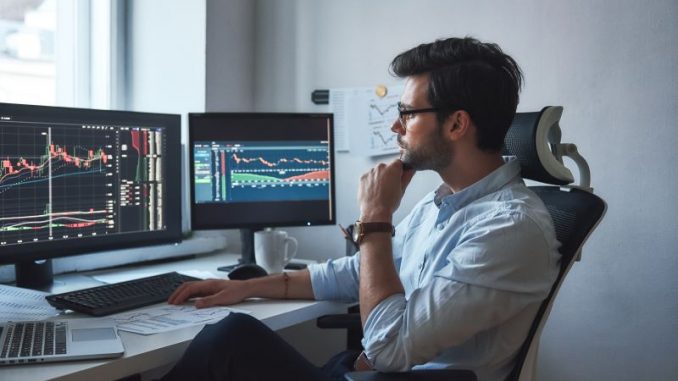
Futures trading in the UK can be a highly lucrative investment opportunity for those willing to put in the time and effort to learn the ropes. UK traders, in particular, have access to various derivative markets that offer potential returns far more significant than traditional investments like stocks and bonds. In this article, we’ll look at what it takes to get started with futures trading, helping UK traders decide whether a career as a futures trader is right for them.
What is futures trading?
Futures trading is a financial tool that permits traders or investors to buy an asset (a ‘contract’) on a particular day at a pre-determined price. This strategy can be used to offset risk, as it helps traders lock in their desired price before the underlying asset’s price moves higher or lower. For UK traders, futures trading provides access to several international markets that could otherwise be difficult and expensive.
What makes futures trading appealing?
Futures trading is attractive because it allows traders to exploit short-term opportunities with limited capital outlay. It also allows them to trade currencies, commodities, and indices without purchasing physical assets or paying storage fees. When done correctly, futures trading has the potential for high returns in a relatively short period due to leverage. The leverage offered by brokers can enable traders to make more significant gains with less outlay, although this does come with a greater risk of losses.
What do UK traders need to get started?
Before starting futures trading, UK traders will need the right tools and knowledge to succeed. A solid understanding of the markets and instruments they wish to trade is essential, as is familiarity with charting software for technical analysis. It’s also important that traders have access to reliable news sources and economic data, which can help them plan their trades effectively.
Regarding trading technology, UK traders should invest in a reliable platform to execute trades quickly and efficiently. Additionally, any broker chosen should offer competitive fees and tight spreads so that traders keep more of their profits when they win.
What are some of the risks involved?
Futures trading is not without risk, and UK traders should know the potential risk of losses. Executing trades only after thorough research and analysis is essential, as this helps minimise the risk of losses. Additionally, traders should always set a stop-loss order to limit their exposure to adverse market movements. Traders must maintain discipline when trading in futures markets to ensure they aren’t betting too much on any single trade.
Developing a trading strategy
Developing an effective and winning trading strategy is essential for UK traders to maximise their returns and manage risk. The most successful strategies typically employ technical analysis, fundamental analysis, risk management and market psychology.
Technical analysis involves charting the price movement of a security over time to identify patterns and trends that can indicate when to enter or exit trades. It can be done with moving averages, support, resistance levels, trendlines and oscillators. Traders should also pay attention to volume data, which can provide additional insight into the strength of a trend or reversal signals.
Fundamental analysis involves looking at other factors that drive prices, such as economic data releases, political events, or corporate announcements. Traders should familiarise themselves with macroeconomic factors such as GDP growth rates or employment figures, which can help them form expectations on how specific markets may move in response to these developments.
Risk management is equally essential in futures trading as it helps traders limit their exposure to losses due to unforeseen market movements. Traders must set realistic profit goals and effective stop-loss orders when entering into positions; this way, they know what level of loss they are willing to accept for each trade before it’s executed. Additionally, diversifying across different asset classes can help reduce overall portfolio risk by spreading potential losses among various investments.
Market psychology should be considered; understanding the motivations of other market participants and adjusting one’s biases is critical to future trading success. Traders must remain vigilant for signs of overconfidence or fear, which could lead them astray from sound trading practices if not managed correctly. Developing an effective trading strategy requires careful planning and execution; UK traders who take the time to put together an effective plan will have greater chances of success in the long run.
The bottom line
For those willing to take the time to learn how futures trading works, there are significant rewards available for UK traders who know what they’re doing. The ability to leverage small amounts of capital for potentially significant returns makes futures trading attractive, although it’s essential to understand the risks involved before getting started. With the right tools and knowledge, UK traders can access exciting markets that offer potential rewards far more significant than traditional investments.